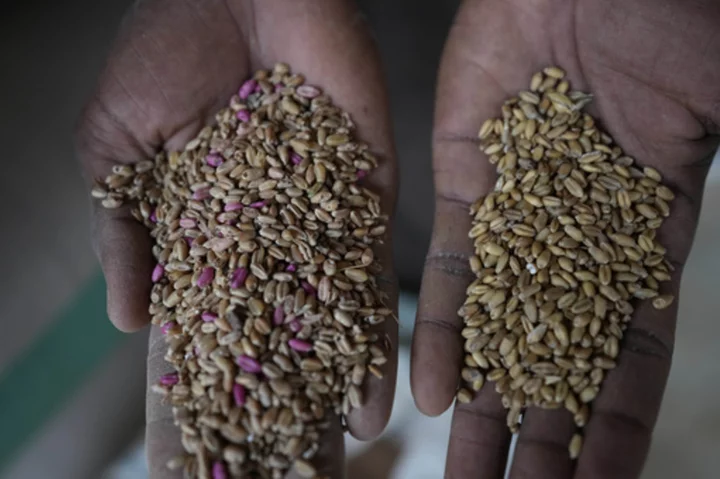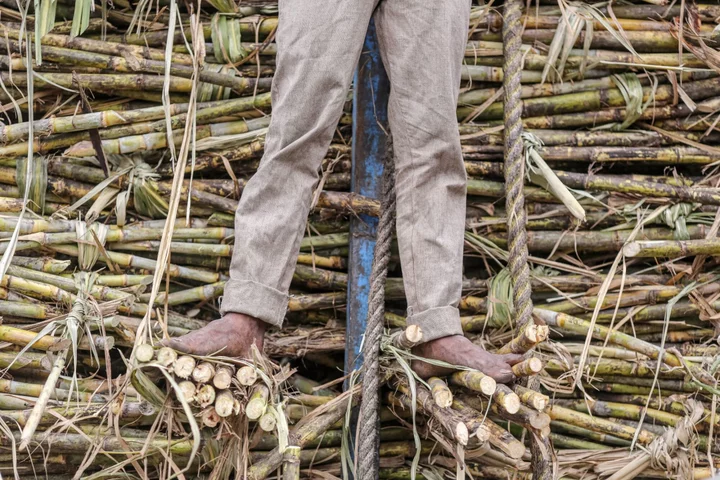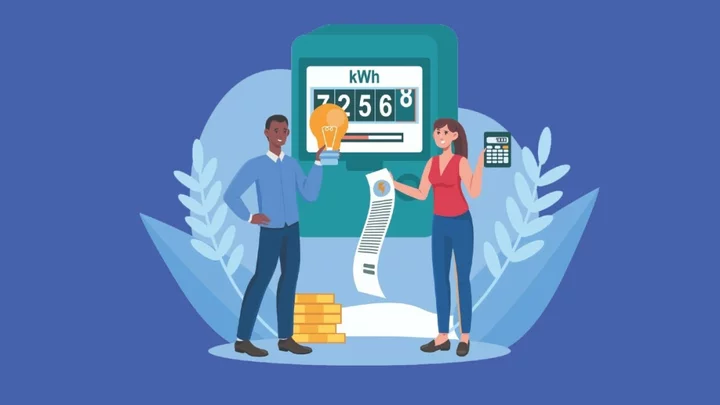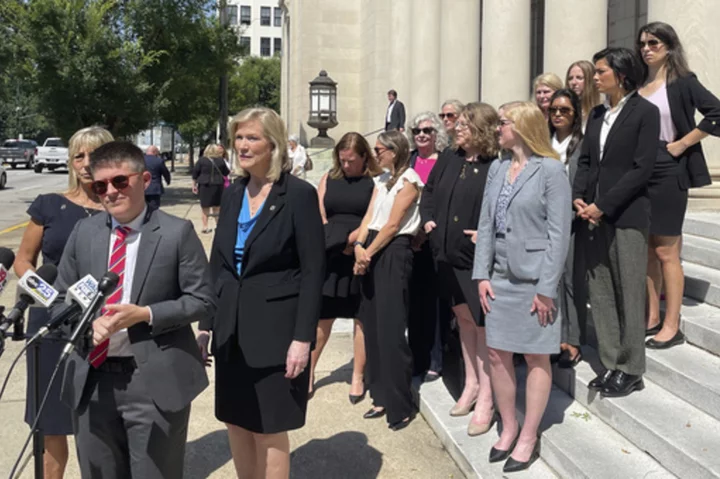ABUJA, Nigeria (AP) — Abubakar Salisu was terrified when he discovered arid sand in the middle of his farmland, rendering a broad strip unfit for crops. Now, extreme heat is killing his wheat before it is ready for cultivation.
Wheat normally requires heat, but in the last three years, farmers in Nigeria’s far north, part of Africa's Sahel region that largely produces the country's homegrown food, have seen an “alarming” increase in heat — much more than required, said Salisu, a local leader of wheat farmers in Kaita, Katsina State. Plus, rain is irregular.
“The unpredictable rain pattern is affecting us because wheat is planted immediately after the rainy season, but sometimes we will plant it thinking the rain has stopped, only to have it start again, thereby spoiling the seeds,” said Salisu, 48.
The vicious heat and rain cycle, worsened by climate change, has contributed to his wheat yield dropping in half.
He is not alone — others in northern areas ripped apart by violence suffer even more. Conflict and climate change are driving a food security crisis in Nigeria, exacerbated by supply disruptions tied to Russia's war in Ukraine. It means people are spending more for food in Africa’s largest economy as it becomes more reliant on imported grain, which is priced in U.S. dollars, and its currency weakens.
Nigeria is trying to become self-sufficient: The government has launched programs to provide loans to farmers and boost domestic grain production. But extreme weather and violence from both gangs and farmers and cattle herders clashing over resources have hindered those efforts. It's left Nigeria unable to produce enough wheat to bridge a gap in supply of more than 5 million metric tons.
Russia's decision this week to back out of an accord allowing Ukraine to ship grain from the Black Sea could make things worse. Ukraine had announced a plan this year to send more wheat to the West African country at expected lower prices, according to the U.S. Department of Agriculture. Now, that initiative in doubt.
The Nigerian program providing loans to growers “worked to a reasonable extent, but corruption played a part, as did the failure of farmers to repay the loans as climate change and insecurity undermined their production,” said Idayat Hassan, senior Africa program fellow at the Center for Strategic and International Studies.
Wheat is one of Nigeria’s most consumed grains, and it imports largely from the U.S., South America and Europe, according to the Trade Data Monitor. Russia was a key source of affordable wheat, but its shipments have dwindled to almost nothing amid the war.
The loan program for growers failed to help increase local wheat yields, so the government has introduced new initiatives to boost how much land is harvested and distribute high-yielding seeds, pesticides and equipment to wheat farmers.
The flour milling industry, which struggles with Nigeria's weakening currency and high costs like diesel fuel, has also made a deal with farmers to source more wheat locally at competitive prices, potentially encouraging growers to increase production.
With the new efforts, the USDA projects Nigeria’s wheat production to increase 42% in the 2023-2024 trading year over the year before. But the agency warned that “the challenges outweigh the opportunities.”
Besides climate change creating irregular rainfall, extreme heat and dry land, “security challenges across the wheat-producing region restricts farmers’ access to fields," the USDA said in this year's Nigeria grain report.
The same problems will also decrease production of rice and corn, the department said.
“Of course, insecurity is affecting our activities because sometimes we can’t go to our farms even if we plant, and some of our colleagues have completely stopped farming, while some of us have reduced the number of our farmlands,” said Sama’ila Zubairu, a wheat farmer in Katsina’s Faskari area ravaged by violence.
Gangs control vast swaths of the north's rural areas, carrying out killings and abductions for ransom. There also are perennial clashes between farmers and cattle herders competing for land and water.
Zubairu has not seen his land degrade like Salisu, but he said “climate change affects me in two ways: excessive heat and rain patterns, which affect my turnout."
He harvested enough wheat to fill 20 bags last year and 18 most recently — down from 35 two years ago.
“And I am not alone,” Zubairu said.
Farmers being unable to reach their fields amid the violence triggers “both human security and food security crises,” said Hassan of the Center for Strategic and International Studies.
Consumers are struggling with food inflation of 24%, with wheat-based staples like bread and pasta nearly doubling in price.
“The price surge has affected me because I have to double the costs of what I normally buy, and I would still not be able to buy enough,” said Chinedu Edeh, cooking gas retailer and installation technician in Nigeria's capital, Abuja. “Pasta has gone from 370 (naira) to 550 per unit."
He avoided the coarse wheat flour semolina in his last trip to the market and bought cheaper cassava flakes instead.
Last week, President Bola Tinubu released a policy statement on food and agriculture acknowledging rising food costs and declaring “a state of emergency,” with a commitment to include food and water availability in the government’s national security system.
Spokespeople for the president and the ministry of agriculture declined to comment or did not send answers to questions.
The government should “appreciate the full extent of how climate change fuels insecurity and food crisis and localize climate plans so that they affect real people who actually produce food for the country,” Hassan said.
___
Associated Press climate and environmental coverage receives support from several private foundations. See more about AP’s climate initiative here. The AP is solely responsible for all content.









